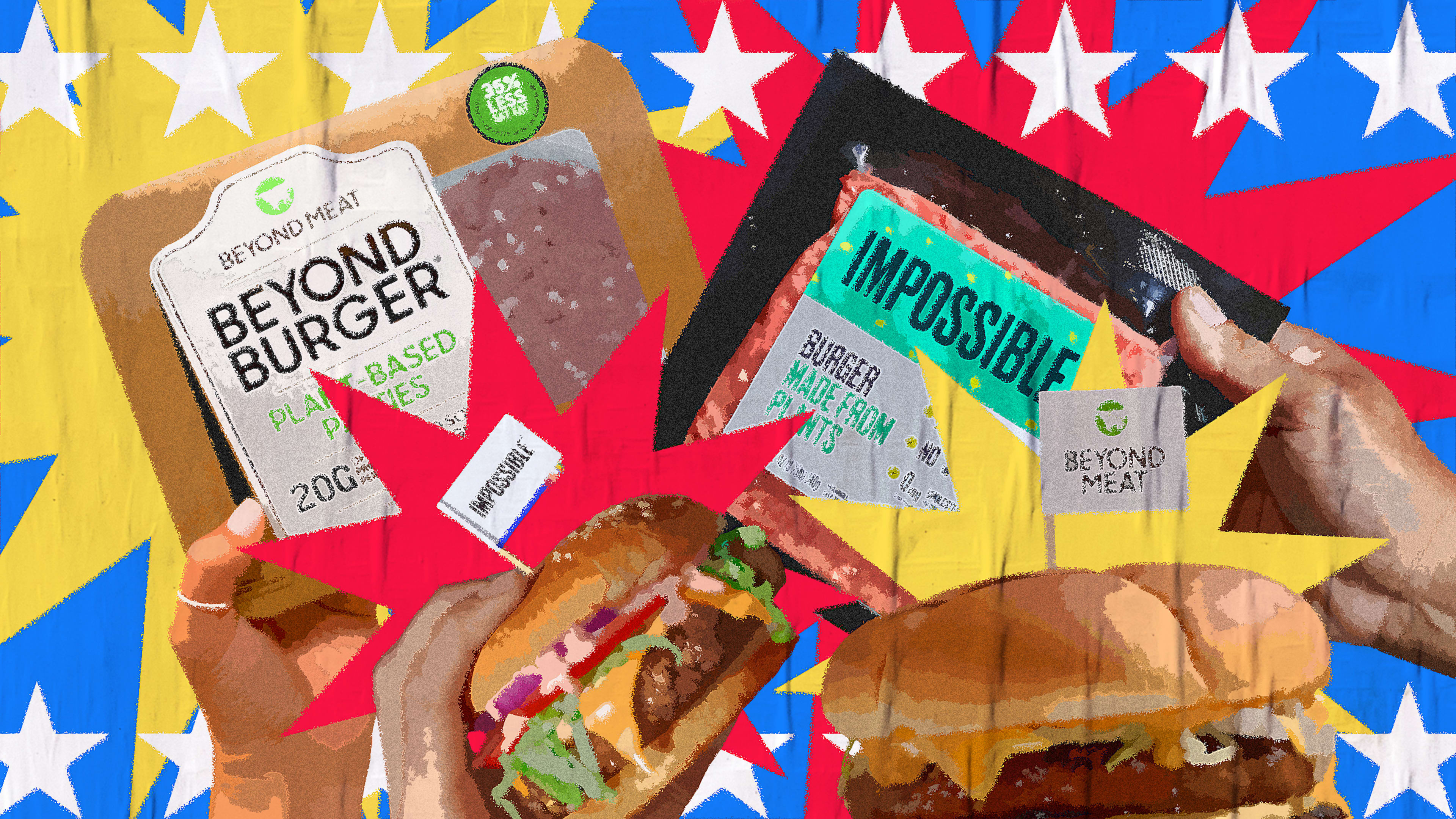Despite whatever preconceptions you might have of plant-based food and the people who eat it as hippy-dippy peace and love types, in business the vegan food industry shows its teeth.
If you’re someone who watches this industry, you already know that brand competition can sometimes be a little less than friendly. Earlier this year, U.K. brand Meatless Farm put out an ad campaign that attacked competing brand Quorn practically by name—the “Make it Meatless, not Quorny” slogan is difficult to interpret as anything else. You might also remember when Lightlife published an open letter in The New York Times and Wall Street Journal last year criticizing Beyond Meat and Impossible Foods for supposedly using fillers, GMOs, and synthetic ingredients. Both brands struck back: Beyond released a statement clarifying that their products actually don’t use GMOs or synthetic additives, and Impossible questioned the legitimacy of judging a product’s health on the number of ingredients it contains.
Competition is the basis of capitalism: it pushes companies to serve customers better by putting out higher quality products at lower prices than their competitors. But one has to wonder whether this kind of infighting is actually benefiting the plant-based market or whether it’s only serving to undermine the collective goal of moving towards a world where fewer animal products are consumed.
Arguably, it’s pretty counterproductive.
Let’s keep in mind that it is industrial animal agriculture that is decimating the environment, exacerbating climate change, perpetrating horrific animal abuse on factory farms, and selling the public tantalizingly cheap and unhealthy products—some of which are known carcinogens. When plant-based meat companies spend capital on criticizing other plant-based meat companies, this potentially both damages both the profits of the opposing company and the reputation of the accuser. The plant-based meat sector as a whole suffers, and the conventional meat producers get off scot free.
It makes no sense to spend time squabbling over nearly identical products when we could be focusing our collective efforts on calling out the role factory farming plays in several of the most pressing issues plaguing our society. Luckily, representatives for Impossible Foods have stated that the company doesn’t consider other plant-based brands to be their competition, rather aiming to convert customers of conventional meat brands. In an interview with Yahoo! Finance, Impossible Foods CEO Pat Brown said, “Beyond Meat is not our competition, and I wish them nothing but success.” According to The Motley Fool, “This sentiment is echoed by Beyond Meat. When registering to go public, the company listed animal-protein competitors like Cargill, Hormel Foods, and Tyson Foods ahead of any plant-based player.”
Ultimately, brands and thought leaders in the plant-based space have more in common than not. Given that plant-based meat still makes up only 1% of the overall meat market, it’s in everyone’s best interest to focus less on specific corporate rivalries and more on making plant-based foods cheaper, tastier and more accessible.
With all the complexities tied to our food choices today, the last thing customers need is to feel like they’re picking sides in a useless brand war. We need to steer away from spending time picking apart the ultimately minute and speculative differences between industrial plant-based food products and concentrate our efforts instead on addressing the very real climate, health, and welfare consequences of continuing to support factory farming. The planet and all its inhabitants will be better for it.
Brian Kateman is cofounder and president of the Reducetarian Foundation, a nonprofit organization dedicated to reducing consumption of meat, eggs, and dairy to create a healthy, sustainable, and compassionate world. Kateman is the editor of The Reducetarian Cookbook (Hachette Book Group: September 18, 2018) and The Reducetarian Solution (Penguin Random House: April 18, 2017).
Recognize your brand’s excellence by applying to this year’s Brands That Matter Awards before the final deadline, June 7.
Sign up for Brands That Matter notifications here.
